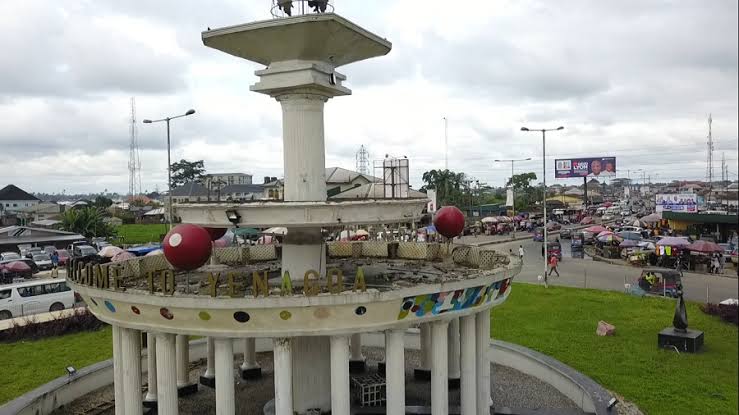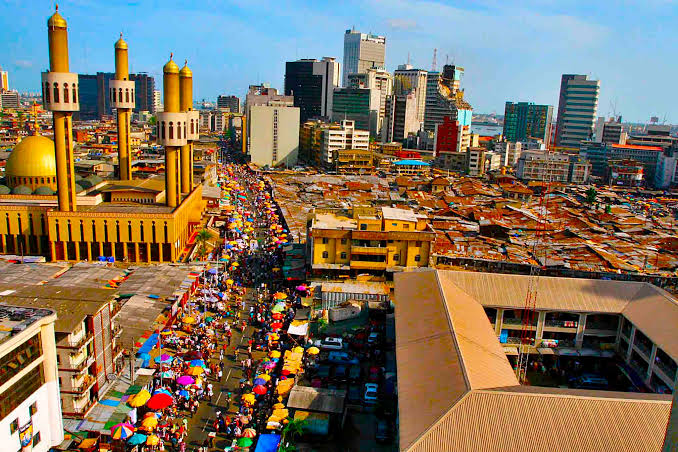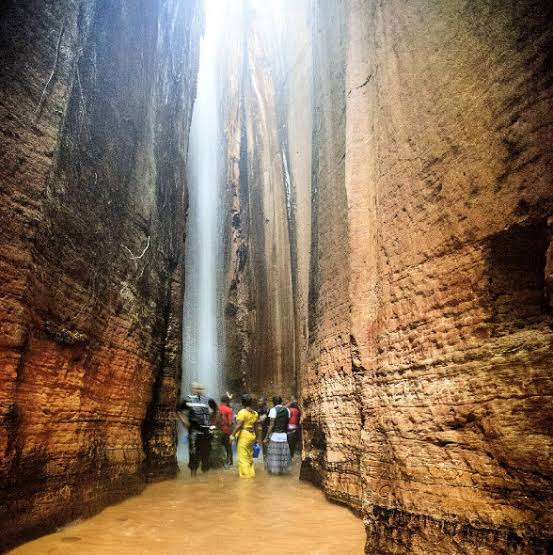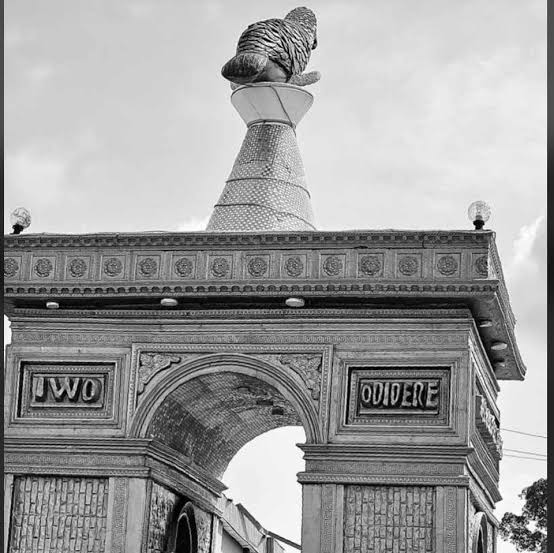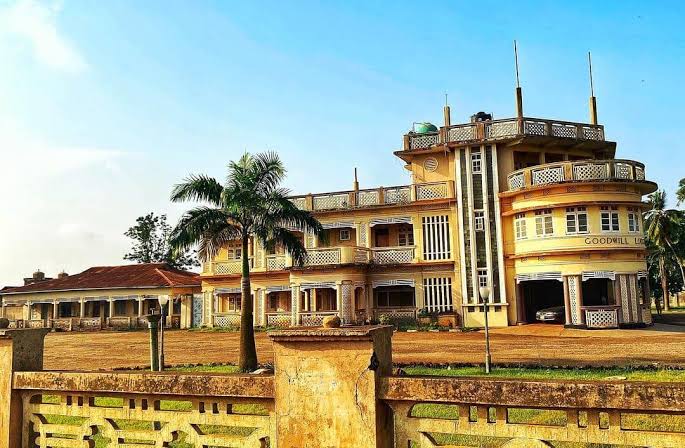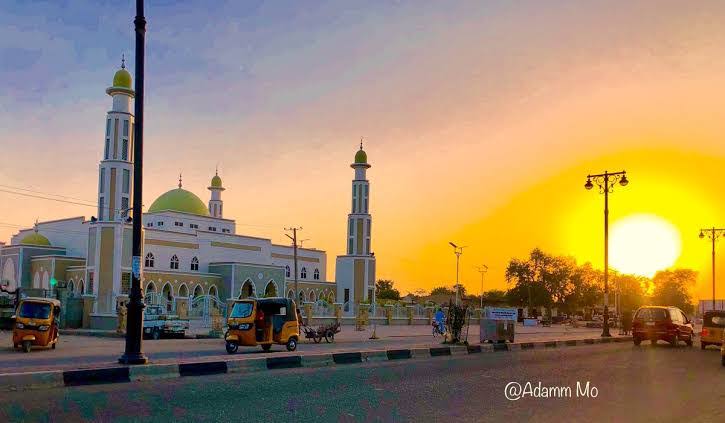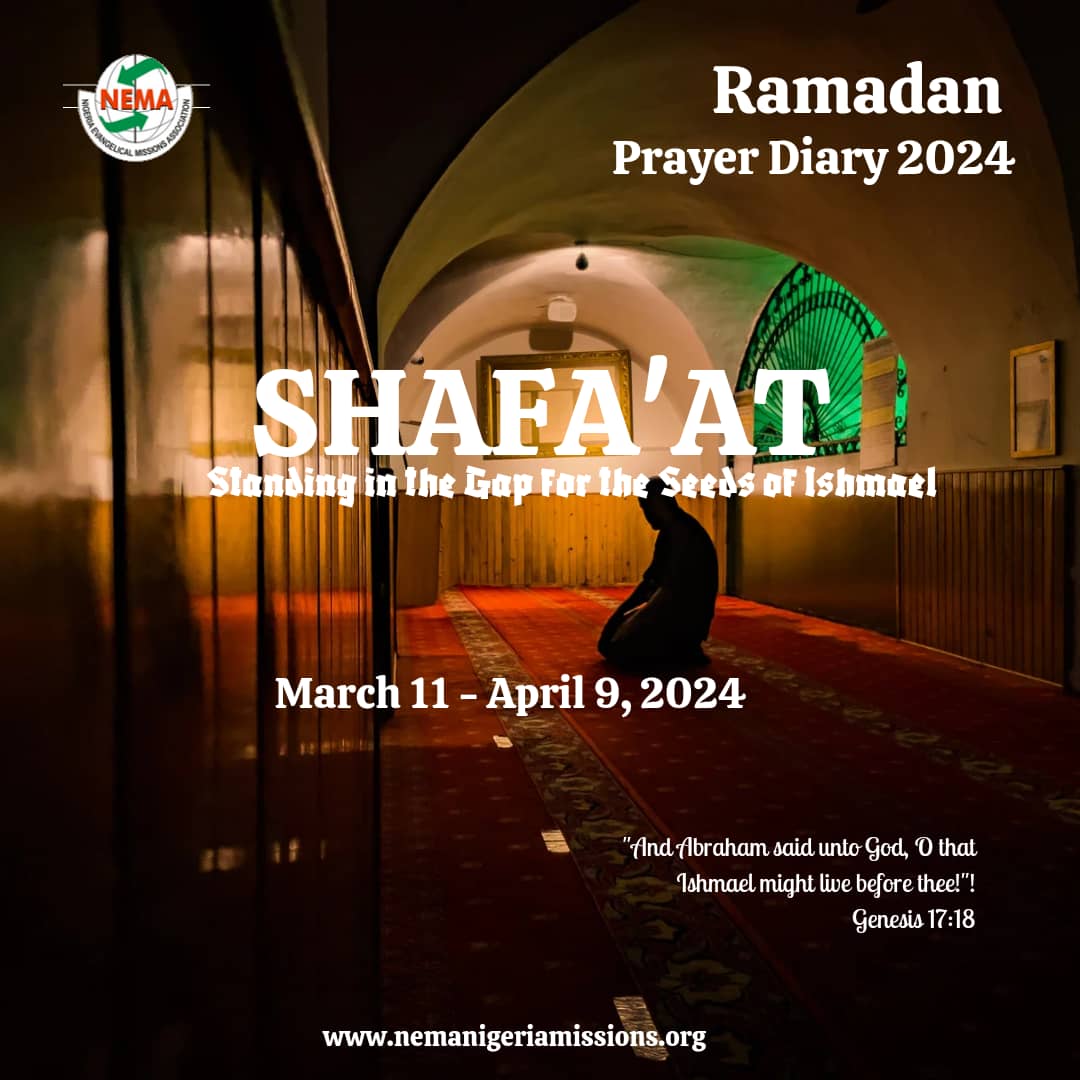Shafa’at: Standing in the Gap for the Seeds of Ishmael
And Abraham said to God, “Oh that Ishmael might live before you” (Genesis 17:18)
Ramadan is one of the pillars of Islam. It is a sacred time when Muslims devote themselves to God through fasting and denying themselves. God loves sincere seekers. He is ready to reveal Himself to those who will seek Him in spirit and in truth (John 4:24). The problem is not about the intention it is more about the means. That is where you and I come in.
Shafa’at in Arabic means to “intercede”. In Islamic context, it is used to mean when a saint or someone devoted to God pleads with Him on behalf of a sinner. The holy man makes intercession for the one that is weak so that through his own right standing with God, the unrighteous can be saved from eternal damnation.
As we identify with our Muslim brothers and sisters during the month of Ramadan, we invite you to consider the salvation that you have received by grace and through faith in Christ Jesus. Can the Lord thus depend on you to stand in the gap till every eye that looks to the star and the crescent come into relationship with the Man of Calvary? For the Lord desires that all men be saved. A vital role of making the desire of the Lord to come to pass is to be on bent knees till the ends of the earth is reached with salvation available only in Christ Jesus.
Beginning from our Jerusalem (Nigeria), we have prayerfully considered strategic towns and cities wherein we trust the Lord to send the Light. The Ramadan prayer guide also features strategic Islamic phenomenon. Play a crucial role in God’s global purpose. Stand in the gap and tarry till the seeds of Ishmael embrace the Light.
WHY PRAY THIS RAMADAN AGAIN?
The testimony of Mallam Fitoka (Not real name).
My journey from Islam to Christianity is a testament of the unwavering grace of God and the transformative power of His love. Born into a devout Muslim family, my upbringing was steeped in the rich traditions and teachings of Islam. The rituals, prayers, and community were integral parts of my identity.
As a Fulani, my life revolved around the care of my cattle, and my commitment to Islam was unwavering. One day, while tending to my cows, I heard a voice speaking to me, urging me to follow Christ. At first, I dismissed it as a figment of my imagination, but the encounters persisted. Jesus seemed to be reaching out to me, calling me to follow Him.
Despite these repeated encounters, I resisted the call for a long time. The voice continued to speak to me, revealing the love and salvation found in Jesus Christ. Finally, unable to bear the weight of the conviction any longer, I humbled myself and asked, “What should I do?” In that moment, the Lord directed me to seek out a Christian who could tell me more about Him.
Guided by this divine instruction, I approached a Christian in my village and shared my experiences. This encounter marked the beginning of a profound transformation in my life. The person I met not only shared the message of Christ with me but also became instrumental in leading me to accept Jesus as my Lord and Savior.
Embracing Christianity wasn’t without its challenges. Persecution and opposition arose from my own community as I declared my decision to follow Jesus. Faced with hostility, I made the difficult choice to leave my village and seek refuge in a safer place. It was there that I found a community of believers who took me in, nurturing my newfound faith.
In this new environment, I was taught more about God, and I underwent a period of discipleship that deepened my understanding of the Christian faith. Today, as I reflect on my journey, I am filled with gratitude for the transformative power of God’s love. I am now a joyful believer in Christ, living a life redeemed and guided by His grace.
I want to express that the prayers of faithful individuals played a crucial role in bringing me to this point. I encourage Christians to pray fervently for Muslims, especially during this sacred Ramadan season, that hearts may be opened, and lives transformed by the love of Christ. I am a living testimony to the fact that no one is beyond the reach of God’s mercy and grace.
Understanding Ramadan: A Brief Overview
Ramadan is the ninth month of the Islamic lunar calendar, observed by Muslims worldwide as a period of fasting, prayer, reflection, and community. This sacred month holds deep significance in Islam as it commemorates the revelation of the Quran to Prophet Muhammad.
Fasting (Sawm): During the daylight hours of Ramadan, Muslims abstain from food, drink, smoking, and certain worldly pleasures as an act of self-discipline and spiritual purification. The pre-dawn meal, Suhoor, and the evening meal, Iftar, mark the beginning and end of each day’s fast.
Prayer (Salat) and Reflection: Muslims engage in increased prayers, including Tarawih, special nightly prayers during Ramadan. This month encourages a heightened focus on self-reflection, repentance, and drawing closer to God.
Charity (Zakat and Sadaqah): Ramadan emphasizes acts of charity and kindness. Muslims are encouraged to give to those in need, exemplifying compassion and generosity. The obligatory almsgiving, Zakat, and voluntary donations, Sadaqah, play a vital role in supporting the less privilege.
Eid al-Fitr: The culmination of Ramadan is celebrated with the festival of Eid al-Fitr, a day of joy, gratitude, and community. Muslims come together, break their fast, offer special prayers, and share meals with family and friends.
Unity and Spiritual Growth: Ramadan is a time for self-discipline, empathy, and spiritual growth. It fosters a sense of unity among Muslims worldwide, as they collectively engage in the activities and share the common experience of fasting and prayer.
Fasting from dawn to dusk, Ramadan is a chance for Muslims to grow closer to God and develop empathy for those less fortunate. As we join our Muslim neighbours in observing Ramadan, may our prayers reflect a spirit of understanding, love, shared humanity, and most importantly, a response to the Lord’s desire to receive worship from all peoples.
You can download the Prayer Diary here
Salam!

